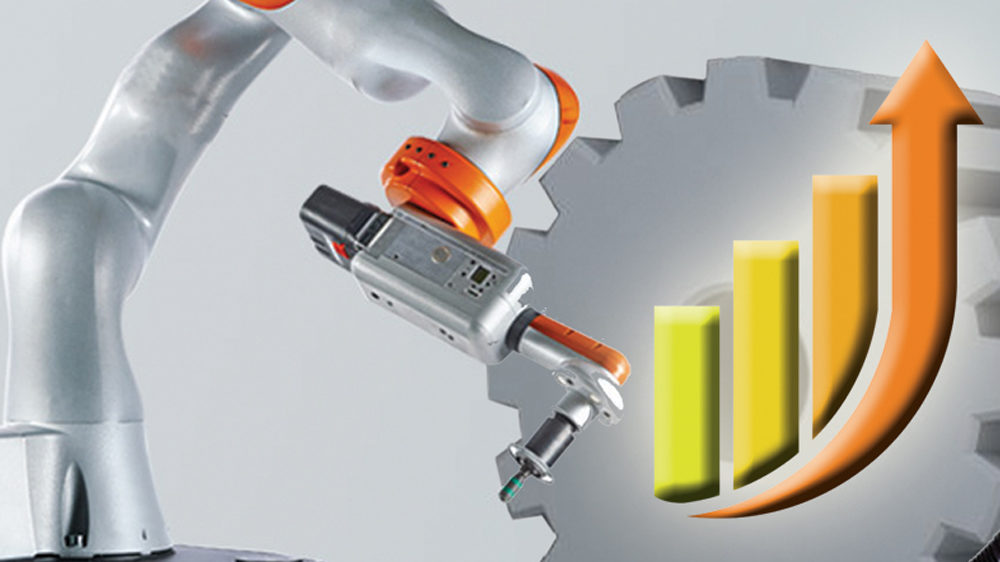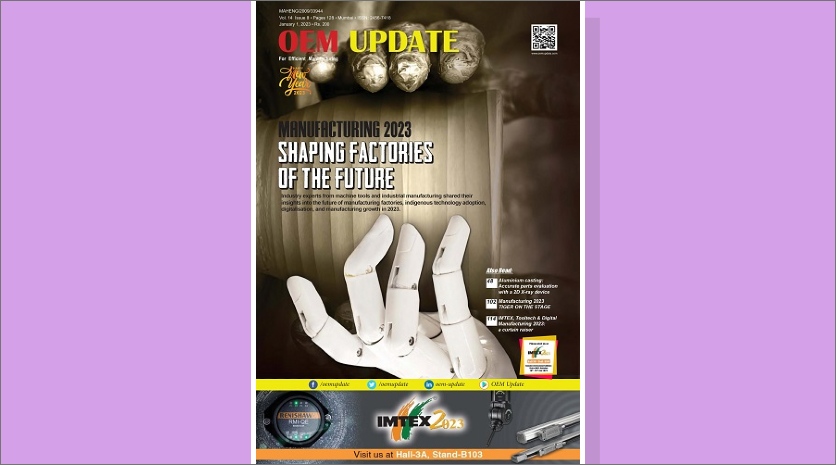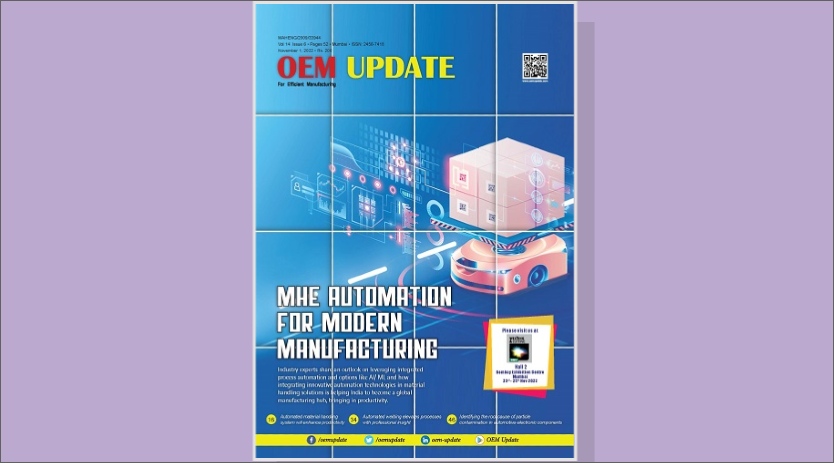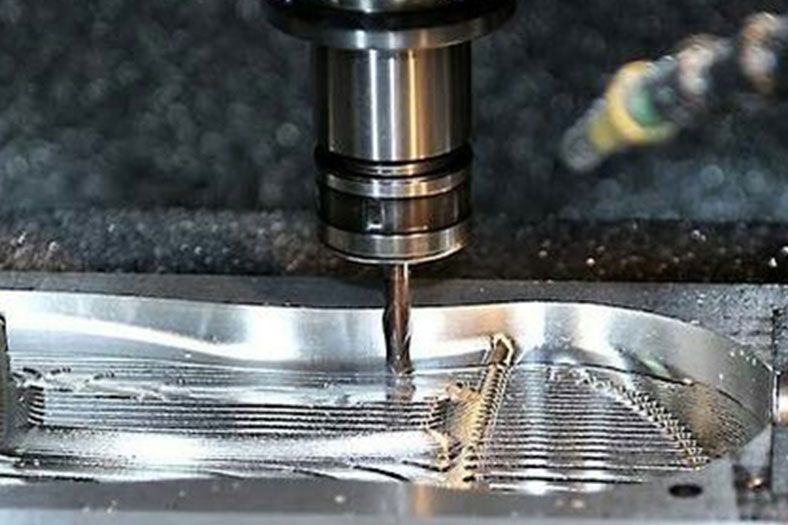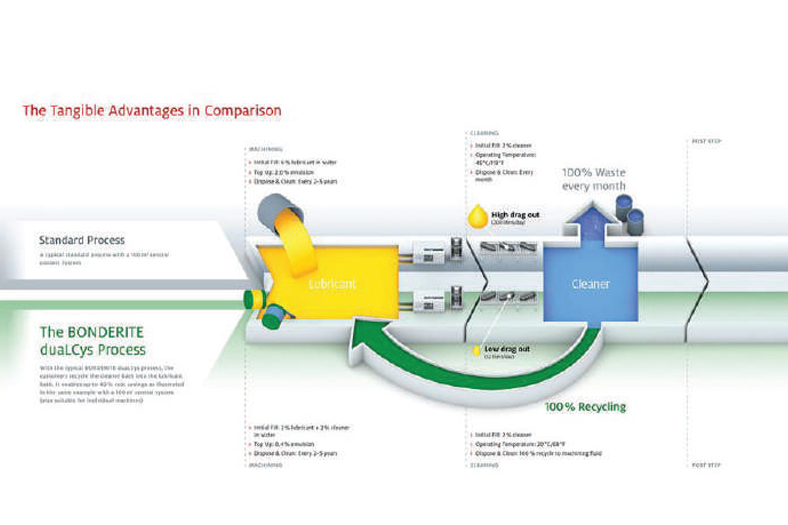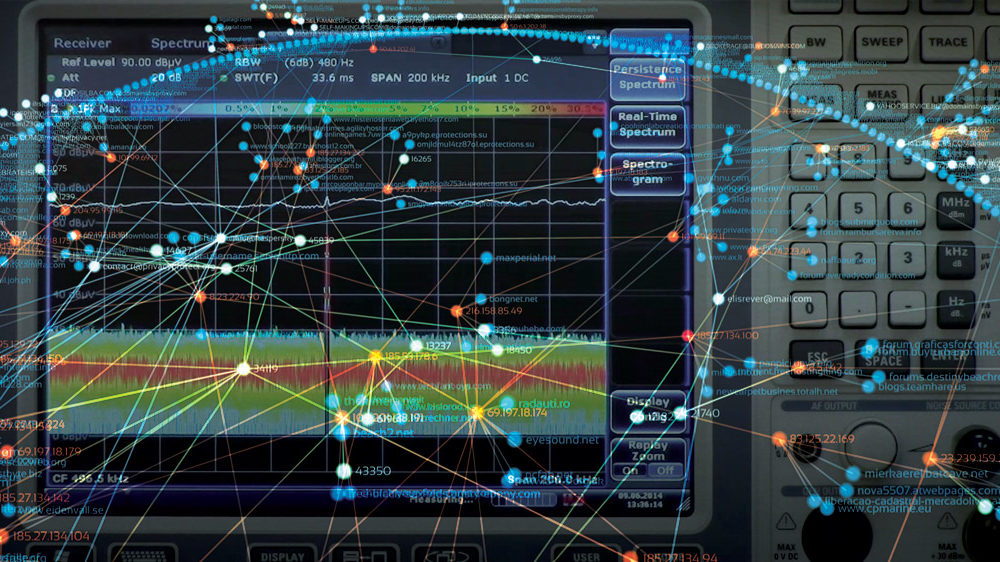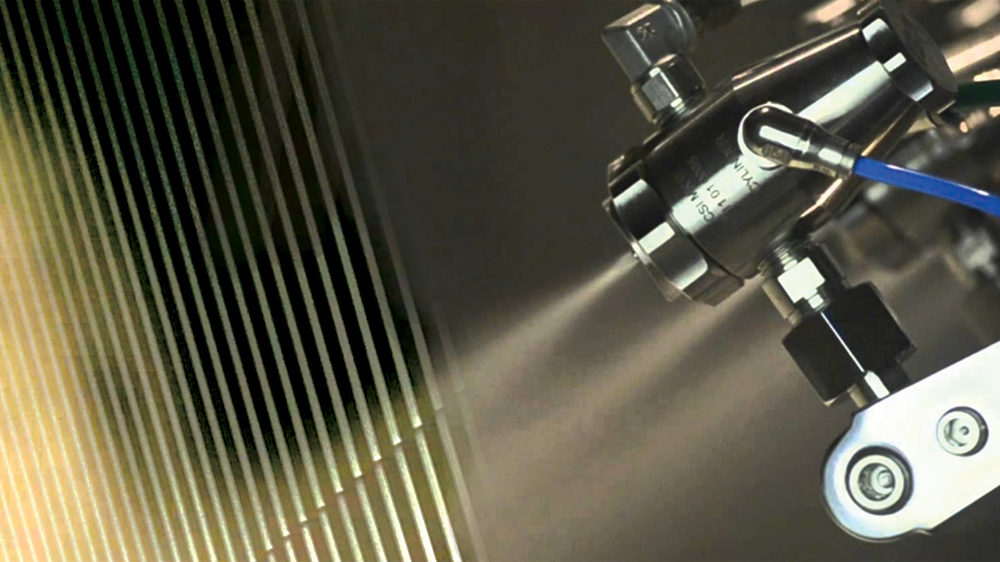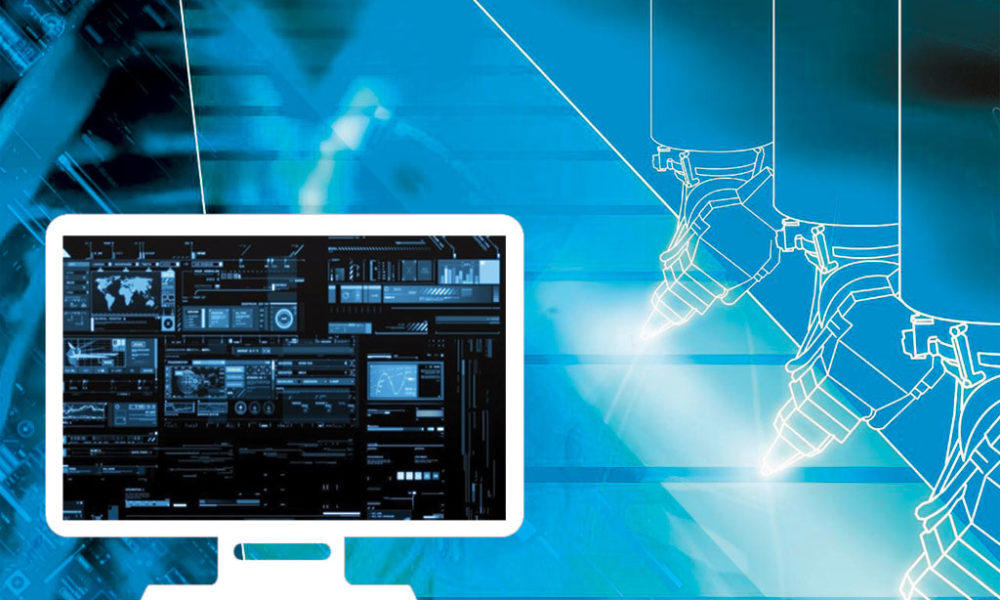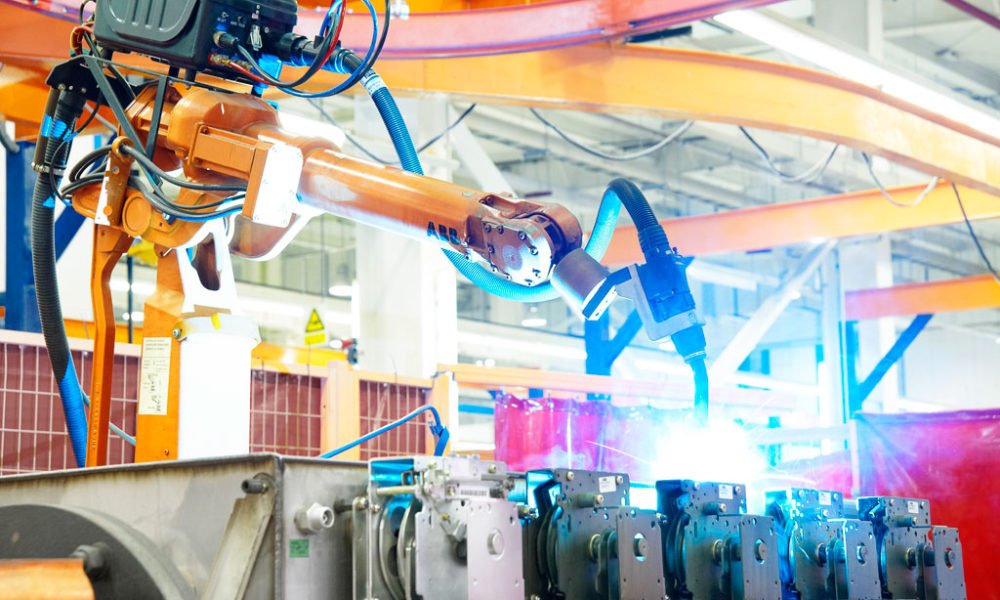Rise of the Robots
May 14, 2018 1:06 pm
An in-depth analysis on how robotics is transforming the shop floor.
The use of robots in manufacturing setups and shop floors is exponentially increasing, with many suggesting of this growth doubling in coming years. Robots are primarily deployed to increase productivity and human safety, avoid repetitive tedious tasks and efficient, safe operation in health hazardous areas. Robots were initially seen bounded by cages to ensure human safety and avoiding harm to humans working around them. Increased safety came at the cost of higher space utilisation on shop floors. Even though the productivity increased than before, opening and closing of cages during operation resulted in higher downtimes and wastage as the safety mechanisms in place usually cut-off the power to these robots. This required the robots to be brought to its home position before restarting operation.
Over the years, these hard-wired safety mechanisms have been improvised to networked and integrated safety mechanisms. This has enabled shop floors to have a smaller footprint for stopping, inbuilt intelligent safety functions, reduced wiring and incorporating electronic data sheets for easier and safe changeover. Definitely, this helped shop floors with better space utilisation, reduced wastage, lesser downtimes and easier restarts. However, shop floor demands have further enhanced and today; shop floors need reduced as well as further optimised space utilisation. In addition, shop floors have to further increase machine and robot efficiencies, reduce wastage and improve human safety.
Human-robot collaboration is here!
Ninad Deshpande, Head – Marketing, B&R Industrial Automation Pvt Ltd, informs, “Today, shop floors have further transformed and robots no longer need to be bounded by cages. This has resulted in reduced space saving. Human and robots are seen collaborating on various activities on the shop floors with all necessary safety mechanisms in place. The robots based on human proximity and touch take necessary actions to reduce speeds, torque etc. and provide a safe operation environment for humans in its vicinity. The robots on human proximity or touch do not shut off and the robot is able to restart its actions as soon as there is no human in its proximity or a human touching the robotic arm. Such cobots (collaborated robots) are increasing their presence thick and fast on shop floors. Robots are also seen mounted right above a shop floor operator without the worry of accidents, which was unthinkable a couple of years back.”
Robots: Transforming the shop floor in a big way
Sanjay Kulkarni, Managing Director, Pilz India Pvt Ltd, states, “Robots are transforming the shop floors in a big way Industrial robots are taking over repetitive and hazardous tasks in a growing number of factories in the automotive, electronics and glass sectors in India. They primarily help in enhancing productivity and making your workforce shifts their attention from repetitive tasks to higher value work.”
Collaborative robots deliver flexibility to shop floor
Sameer Gandhi, MD, Omron Automation, India, says, “Robots are one of the key components of a smart shop floor denoting flexibility, creativity, ingenuity and harmony. By replacing fixed conveyors and by actualising the shift from a conventional ‘hard-tooled cell’ to a progressive ‘flexible integrated cell’, they are bringing in greater flexibility to the shop floors resulting into improved productivity and efficiency.”
Gandhi believes that they are also bringing in ingenuity and creativity by taking care of repetitive manual labor activities so that the employees are able to climb up the skills ladder to focus more on higher-level tasks demanding more complex skills. He adds, “Last but not the least; they are playing a key role in cementing the symbiotic relationship between humans and machines.
Smart implementation of machine learning
Kishan Daas GT, Business Manager-Training Academy, DiFACTO Robotics & Automation Pvt Ltd, says, “Robotics is finding new applications in the shop floor with the advent of collaborative technology, machine learning and machine vision. Replacing traditional sensors with smart sensors takes away some computation off from the PLC there by increasing the productivity.”
He adds, “New robotics applications are also driven by innovative system designs. Custom EOAT designs help achieve complicated tasks, IPC’s help building systems with better user interface, parts tractability and data collection, SPM’s integrated with industrial robots helps solving challenging applications.”
‘Rise of the robots’ is sparking an investment boom
Pradeep David, General Manager, Universal Robots – South Asia, says, “The global competition has made automation inevitable in manufacturing industry which has helped in efficient manufacturing processes and in mass- production of goods. The application of robotics and automation has witnessed phenomenal growth in a wide range of industries dealing with well-defined processes and products like the manufacturing industry, FMCG, automotive industry, the healthcare industry, etc. Indian manufacturers are realising the importance of automation and investing into it.”
Good reasons to invest in robots
The primary reason for this is to get consistent quality that is ensured by the repetitive accuracy of the robot. Both international and domestic manufacturers use robots for a range of activities on the shop floor, especially repetitive and monotonous tasks. He informs, “Today, shop floor tasks commonly performed by robots include welding, painting, polishing, deburring, assembling components, transporting items and machining. Designed to carry out tedious, repetitive and strain inducing tasks, cobots improve the working environment for employees by reducing their exposure to musculoskeletal disorders and potential workplace hazards. This in turn equates to less work days lost for the company and up to an 85 per cent reduction in staff idle time.”
India is a labour intensive country and at present, a number of industries are facing labour problems hence collaborative robots help in dealing with the labour problems on one hand, and on the other hand, it offers higher productivity and precision in the manufacturing process. Installing cobot in critical points of the process can therefore reduce this human-related risk, optimise the use of materials and avoid costly product recalls.
David adds, “For manufacturing companies, the lightweight cobots are the new, economic alternative to expensive, traditional industrial robots. They make automation affordable and thus a realistic choice especially for small and medium sized enterprises. They can be handled and programmed intuitively, require very little space and allow for an easy and fast implementation everywhere. The cobots are flexible, mobile tools that can be retooled for different tasks within the manufacturing process. Therefore, cobots are ideally suited for companies which produce a wide range of products and small lot sizes.”
Advanced robotic solutions for the manufacturing segment:-
mapp technology – B&R Automation
Deshpande from B&R, informs, “mapp Technology is one such innovation in recent times, which enhances software functionality and reduces the development effort by 67 per cent. Thus, we believe that programming is the thing of the past and we look at configuration as the new way of application development.”
openROBOTICS
All B&R controllers are powerful and with mapp Technology are capable of handing the robot programming, eliminating the need for a separate robot controller, thus, reducing costs. openROBOTICS has opened up new dimensions of robotics integration for machinery and production lines. With completely uniform programming for every component in the line – including robotics – it’s customers around the world gain full benefit of holistic approaches to operation, diagnostics and maintenance. B&R has already a successful implementation for a human robot collaboration application where the robot is not bounded by cage and works together with humans satisfying entire safety requirement.
Ethernet POWERLINK, the only open source real time deterministic Ethernet communication acts as a backbone for all B&R systems. B&R offers openSAFETY, which is the only fieldbus independent SIL3 certified safety communication for machines, plant and factory and OPC UA for machine-to-machine and machine to ERP / MES / cloud connectivity.
PSS 4000 – Pilz
The company have many new offerings in the field of robotics. Sanjay from Pilz, explains, “Pilz PSS 4000 can be used for cell control which enables optimum interaction of hardware and software components, network devices and real-time Ethernet. The consistent distribution of the control functions in the periphery. The PSS 4000 also offers solutions for safety and automation.”
With sensors like PSENsgate in portfolio that combines secure safety gate monitoring, safe guard locking and control elements in just one system, up to the highest category PL e. Other than this PSENcode, PSENopt offer safety for material handling or access to the hazardous areas.
Camera based sensors from Pilz like SafetyEYE monitors workspaces in which man and robot collaborate, even without any guards. The hazardous area is surrounded by a virtual three-dimensional detection zone. This ensures unhindered access to the robot and means that workstations can be designed with ergonomics in mind.
PROBms – Pilz
PROBms is the latest offering by Pilz in the area of robotics which offers complete package for validation of human-robot collaborations (HRC) in accordance with ISO/TS 15066. PROBms is a pressure and force measurement device which is used for robot movement. It evaluates the collision force exerted by robotic arms. This type of device is particularly used in HRC.
‘3-i’ automation concept from Omron assures smarter factories
Gandhi from Omron explains, “We have a well-made portfolio of robotics solutions collated and curated keeping in consideration the ever-changing needs of the manufacturing sector under the realm of our well-known ‘3-i’concept of automation – intelligent, interactive and integrated.”
High-performance 4-axis SCARA robots
Omron’s high-performance 4-axis SCARA robots are worth a mention here, too, as they are ideal for mechanical assembly, material handling, packaging, machine tending, and screw driving. Omron’s 6-axis articulated robots are also delivering enormous values for mechanical assembly, material handling, packaging, and palletizing.
Another notable offering, which is quite well-know by now is Omron mobile robots. Noted as world’s most productive Autonomous Intelligent Vehicles (AIVs), equipped with Omron’s patented acuity technology, they have excellent man-machine workspace sharing and are proving to be very effective companions for jobs which are mundane, hazardous, or burdensome.
Sensors and vision
DiFACTO Robotics has been successful in addressing tool un-loading and loading requirement for a CNC machine shop. Customer has numerous machines with ATC and was facing a problem of changing the tools in the tool holder. A robot cell has been set up to inspect the wear-out of the tool and replace the worn out tools from a tool holder. The tool holder with the tools is presented on a pallet and sent into the system. Daas GT from DiFACTO explains, “Using an industrial robot integrated with a CNC system and a vision system, we have been successful in removing the worn out tool and replacing it with a new one.”
In the collaborative technologies domain DiFACTO is working on integrating industrial robotics with SDV’s. He adds, “With this solution we will be able to scale mega factories and shop floors. These systems will be employed in factories to service various machines and systems in the shop floor. Robots will be safely working with human beings and other equipment.”
At DiFACTO, the company have developed EOATS for special applications. One such developed was for a robot manipulated system for insertion of tubes into assemblies. The EOAT consist of vision systems, servo drives and smart sensors which help in precisely locating and feeding the tubes.
UR3, UR5 and UR10
David from UR, informs, “We manufacture 3 robotic arms namely UR3, UR5 and UR10 which have a payload capacity of 3kgs, 5kgs and 10kgs respectively.”
H e further adds, “With its patented technology, employees can easily program and set up these low cost robotic arms with intuitive, 3D visualisation. The actions of the robot are controlled and programmed by a touch pad or by simply moving the robot arm to show the desired path of movement. The cobots are precise and can handle the smallest of parts with complete accuracy. The Universal Robots design and technology allows manufacturers to automate their existing production lines without the need to overhaul their production layout.”
mapp Technology is one such innovation in recent times, which enhances software functionality and reduces the development effort by 67 per cent.
Ninad Deshpande, Head – Marketing, B&R Industrial Automation Pvt Ltd
PROBms is the latest offering by Pilz in the area of robotics which offers complete package for validation of human-robot collaborations (HRC) in accordance with ISO/TS 15066.
Sanjay Kulkarni, Managing Director, Pilz India Pvt Ltd
Robots are one of the key components of a smart shop floor denoting flexibility, creativity, ingenuity and harmony.
Kishan Daas GT, Business Manager-Training Academy, DiFACTO Robotics & Automation Pvt Ltd
Robotics is finding new applications in the shop floor with the advent of collaborative technology, machine learning and machine vision.
Kishan Daas GT, Business Manager-Training Academy, DiFACTO Robotics & Automation Pvt Ltd
We manufacture 3 robotic arms namely UR3, UR5 and UR10 which have a payload capacity of 3kgs, 5kgs and 10kgs respectively.
Pradeep David, General Manager, Universal Robots – South Asia
Cookie Consent
We use cookies to personalize your experience. By continuing to visit this website you agree to our Terms & Conditions, Privacy Policy and Cookie Policy.



